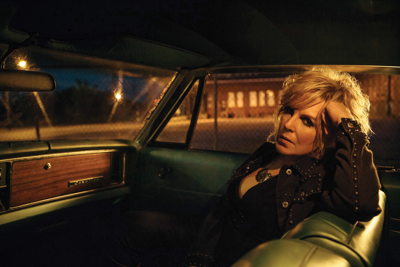
Americana music had existed in nascent form before Lucinda Williams dropped her epochal full-length Car Wheels on a Gravel Road onto the market in June 1998. But it’s safe to say that Williams’ album, which gathered up the loose threads of American music in a design that we now recognize as Americana, changed the landscape forever.
A monument to studio craft that aestheticizes blues, country and rock ’n’ roll, Car Wheels on a Gravel Road took a long time to gestate, since Williams — a perfectionist who seemed to know her fifth album was her shot at immortality — recorded and re-recorded the songs at several studios before finishing the record in 1997. Car Wheels goes beyond such proto-Americana albums as Elvis Costello’s 1986 King of America and The Blasters’ 1985 Hard Line, marrying Williams’ imagistic lyrics to allusive, slangy music that came to life through constant experimentation inside the recording studio. Williams’ perfectionism paid off, since she recorded a masterpiece, but the process wasn’t easy.
On Tuesday, Williams will play Car Wheels from start to finish at the Ryman as part of a tour marking 20 years since the record’s release. She will also perform other material from her oeuvre, including perhaps her best-known song, “Passionate Kisses,” which country singer Mary Chapin Carpenter turned into a Top 10 Billboard country hit in 1993. Williams continued to do fine work after Car Wheels cemented her reputation as a great songwriter who is also a canny recording artist, but the album remains her signature piece of music.
“I didn’t want to make another album that sounded like [1992’s] Sweet Old World,” Williams tells the Scene, describing her thoughts while creating Car Wheels. Speaking from Nashville (where she says she has been recording demos of new material), she recalls: “I wanted it to be bigger-sounding. A lot of people don’t know the album was finished and in the can for an entire year before it came out, which has to do with more the music business part of things, which is behind the scenes.”
Famously, Car Wheels went through two complete revisions. Williams began recording the material that would compose the finished album in 1995. Those recordings, done with her longtime producer and guitarist Gurf Morlix, were scrapped, and Williams began recutting the songs in Nashville a year later with Steve Earle and producer Ray Kennedy. She completed Car Wheels in Los Angeles with producer and Bruce Springsteen keyboardist Roy Bittan.
Early in the recording process, Williams traveled to L.A., trying to figure out how to finish the album. While she was there, she met with producer Rick Rubin, who Williams says wanted to produce Car Wheels. Rubin, who signed Williams to his American Recordings label (though the album was eventually released on Mercury), played her PJ Harvey’s 1995 full-length To Bring You My Love and suggested she work with a new set of musicians. Rubin had a vision for Williams’ album that went beyond country-rock conventions.
“Rubin saw the potential that I had to get past the folkie thing, or whatever you want to call it,” says Williams. “Rick was still involved in things when we were working with Steve. Rick wanted me to take out one of the verses on ‘Drunken Angel,’ because he said it was too long. And I said, ‘No, that’s not gonna happen.’ He was trying to push things a certain way, which would have been more radio-friendly.”
As Williams says, she was trying to complete the album with all three — Morlix, Earle and Rubin — making suggestions. No matter how difficult the process might have been, the result was a record full of musical details (foreshortened guitar licks, harmonica interjections and ghostly accordion) that give the impression of a car speeding down a road through the Mississippi Delta at night, with Robert Johnson on the radio. “Can’t Let Go” features blues guitars battling for space, while “Drunken Angel” alludes to the sound of The Byrds.
Williams’ vocals on Car Wheels are as unstudied and naturalistic as the music is calculated, and it’s this seeming dichotomy between subject matter and presentation that gives the record much of its power. Car Wheels, like similar Americana albums of the time (Fight Songs by Old 97’s, for instance), defined the genre as a space in which disparate elements of American music could combine to inspire work that only seemed folkish and unstudied. In the coming years, Americana would become a syncretic form, embracing strains of rock, punk, country and bluegrass.
For all its prescience, Car Wheels remains unique. Williams turned her territory — the Deep South — into a poetic construct that transcends local color. In Williams’ hands, the culture of Mississippi, Texas and Louisiana became world culture, and Americana became shorthand for the ways that local concerns are revealed as matters of universal interest.





